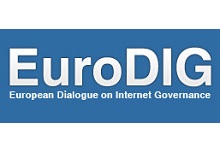IoT dynamic coalition
18 Jun 2019 16:30h - 18:00h
Event report
[Read more session reports and live updates from the EuroDig 2019]
The session, organised by the IGF Dynamic Coalition on the Internet of Things ( DC IoT), focused on the ethical and security considerations that are essential for the development and use of IoT devices.
This session was introduced by Mr Maarten Botterman (Chair, IGF DC on IoT), who detailed the benefits and challenges brought by the IoT, the social issues these technologies raise, as well as the applications they have in a wide range of sectors. The basic approach of the Dynamic Coalition is that IoT is merely a specific aspect of the Internet, but with specific characteristics that will codetermine the development of future networks. This Dynamic Coalition was established in Hyderabad in 2008 and aims to develop a shared understanding of global good practices with regard to the IoT.
Botterman then asked the participants to address the following three key issues as part of this session: (1) What ethical considerations are important for the development, deployment and use of IoT, in order to ensure that we are creating sustainable solutions with IoT? (2) What prerequisites are important from a security perspective, to ensure that IoT can be trusted not to be harmful to its users, or to the wider Internet? (3) Looking ahead – which issues will become relevant in the future for IoT development?
Mr Frederic Donck (Managing Director, Internet Society European Regional Bureau) talked about the past work developed by the Internet Society on IoT, in particular its previous campaign Trust by Design. The Internet Society has approached these issues focusing on security and privacy. One of its studies has shown to what extent many devices will soon come into the market without any security requirements, and more importantly why. In this context, the Internet Society has focused on emphasising the need for manufacturers to embed trust by design in the products. As part of its advocacy work, the Internet Society has progressed rapidly and was successful in approaching several governments. For instance, Canada has recently finalised a multistakeholder process, with the support of the Internet Society. France is also undergoing the same process, while the UK Department for Digital, Culture, Media and Sport (DCMS) has produced guidelines on IoT security as well. Other partners are moving along the same lines, such as the European Telecommunications Standards Institute (ETSI) and Mozilla. The Internet Society also created a platform for leaders and government representatives, involving Canada, France, Senegal, United Kingdom, Uruguay, the USA, and soon Australia and Japan.
Mr Arthur van der Wees (Founding Member, Alliance for Internet of Things Innovation (AIOTI)) then developed on the work of the AIOTI at the European level to strengthen the dialogue among all players and speed up the take-up of IoT. Initiated by the European Commission in 2015, the Alliance is currently focused on horizontal issues, such as applications and business models. Van der Wees pointed to newly adopted legislative acts in the EU (Network and Information Security Directive, Cybersecurity Act, Payment Service Directive), which provide a framework for advancing and setting IoT requirements in the future. Van der Wees also signalled that establishing certification requirements for IoT could present major challenges for small and medium-sized enterprises (SMEs), and may even worsen security levels in certain cases.
Mr Jonathan Cave (Alan Turing Institute, University of Warwick, UK Regulatory Policy Committee) first referred to the ethical issues brought by IoT, as these technologies tend to negatively impact areas which were sacrosanct and private until then (for instance when IoT analyse conversations). A number of contradictory factors create ethical dilemmas. For instance, the intention to keep devices up to date, partly fuelled by the commercial interests of the businesses, can lead to difficulty for individuals to fully comprehend these rapidly evolving technologies. There is a framework to give users more control and allow them to provide consent, but this framework is weakened when users do not understand the technologies and the magnitude of their reach. Thus, as devices are developing, so should their ethics, without precluding innovation.
Mr Kuo Wei Wu (Chairman, Taiwan Internet Governance Forum) indicated that more than 70% of the chips for IoT are produced in Taiwan. This signals that perspectives of the Asia Pacific region on IoT are strongly determined by commercial interests and economic growth. The issue of ethics is problematic, as there are different types of ethics in Asia or in Europe, which may contradict each other.
By Clément Perarnaud
Related event

